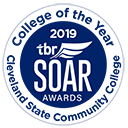Reporting Fraud, Waste, or Abuse
State law requires all public institutions of higher education to provide a means by which students, employees, or others may report suspected or known improper or dishonest acts. In addition, the College is committed to the responsible stewardship of our resources.
Whether you are part of departmental management, a faculty or staff member, a student, or an interested citizen, we encourage you to report known or suspected dishonest acts by employees, outside contractors, or vendors.
What Should I Report?
Dishonest acts, either known or suspected, should be reported, such as:
- Theft or misappropriation of funds, supplies, property, or other university/college resources
- Forgery or alteration of documents
- Unauthorized alteration or manipulation of computer files
- Improper and wasteful activity
- Falsification of reports to management or external agencies
- Pursuit of a benefit or advantage in violation of the college’s conflict of interests policy
- Authorization or receipt of compensation for hours not worked
Think Before You Speak!
Before making allegations of dishonesty, be reasonably certain of any claims. Such allegations can seriously and negatively impact the accused individual’s life and adversely affect the working environment of the department.
Reporting Options
Several options are available to all college employees, students and others for reporting known or suspected dishonest acts.
You may report your concerns:
- To your supervisor or department head
- To an official at your campus or institute
- To College Internal Audit at (423) 473-2391
- To the Tennessee Board of Regents by email at ReportFraud@tbr.edu
- To the Tennessee Comptroller’s Hotline for Fraud, Waste and Abuse at 1-800-232-5454
If you are a supervisor, department head, or campus official and you receive a report of a dishonest act, contact Internal Audit at (423) 473-2391 for further assistance.
Investigations
When Internal Audit receives allegations of dishonesty or other irregularity by an employee, outside contractor, or vendor, they are required to conduct an investigation.
Departmental management should not attempt to conduct investigations nor alert suspected employees of an impending investigation.
In an investigation, objectives include verifying the facts, maintaining objectivity and confidentiality, determining responsibility, and recommending corrective actions to help ensure that similar actions do not occur in the future.
Protection under State Law
As Internal Audit investigates allegations of dishonesty, the reporting individual’s confidentiality is protected under Tennessee Code Annotated Title 10, Chapter 7 (subject to court action requiring disclosure). Also, state law prohibits discrimination or retaliation of any kind against employees who report allegations of dishonest acts.
Reporting Responsibility
Internal Audit has reporting responsibility to the Audit Committee of the Tennessee Board of Regents through the Director of System-wide Internal Auditing. This reporting relationship enables them to independently and objectively review matters involving any level of administration at the college.
Preventing Fraud, Waste and Abuse
College management is responsible for establishing and implementing systems and procedures to prevent and detect fraud, waste and abuse.
The basic elements of a proper control system include:
- Creating a culture of honesty and high ethics
- Evaluating risks and implementing processes, procedures and controls to prevent, deter and detect fraud, waste and abuse
- Developing an appropriate oversight process
Management at all levels of the college should review the information that is available from the American Institute of Certified Public Accountants in the document, Management Antifraud Programs and Controls: Guidance to Help Prevent and Deter Fraud, found as an exhibit in their Professional Auditing Standard AU 316 at this website: Professional Auditing Standards
Please contact Internal Audit at (423) 473-2391 if you need assistance in reviewing risks, processes, procedures or controls, or in providing internal control training.
More Information
For more information, please see the Cleveland State brochure: Preventing Fraud Waste and Abuse and the TBR Policy 4:01:05:50 "Preventing and Reporting Fraud, Waste or Abuse."










